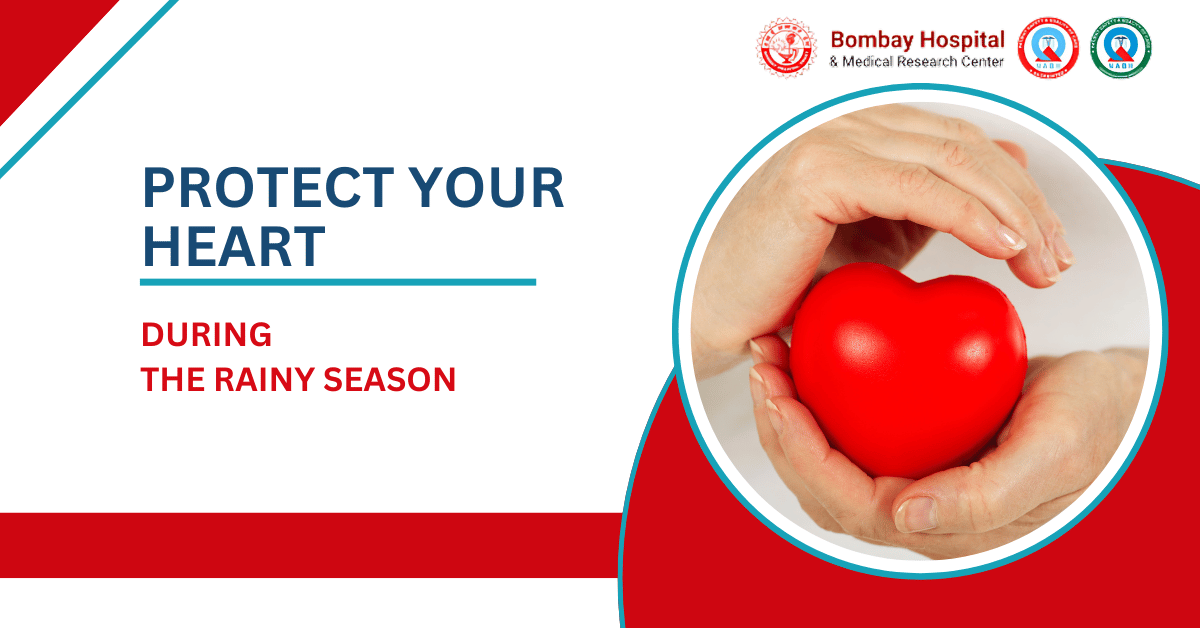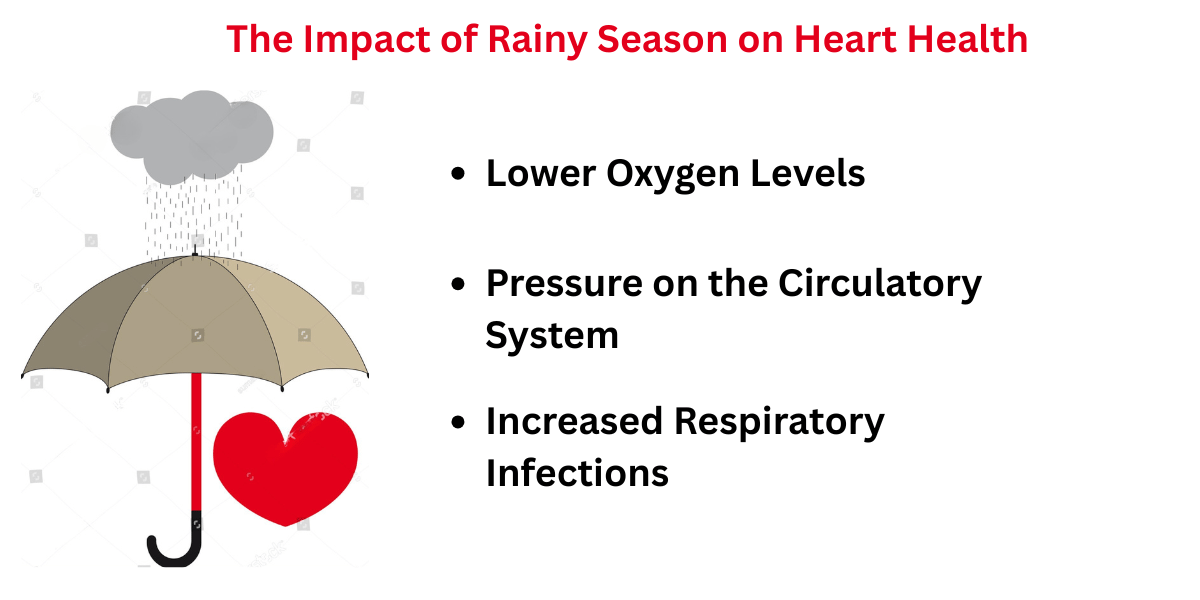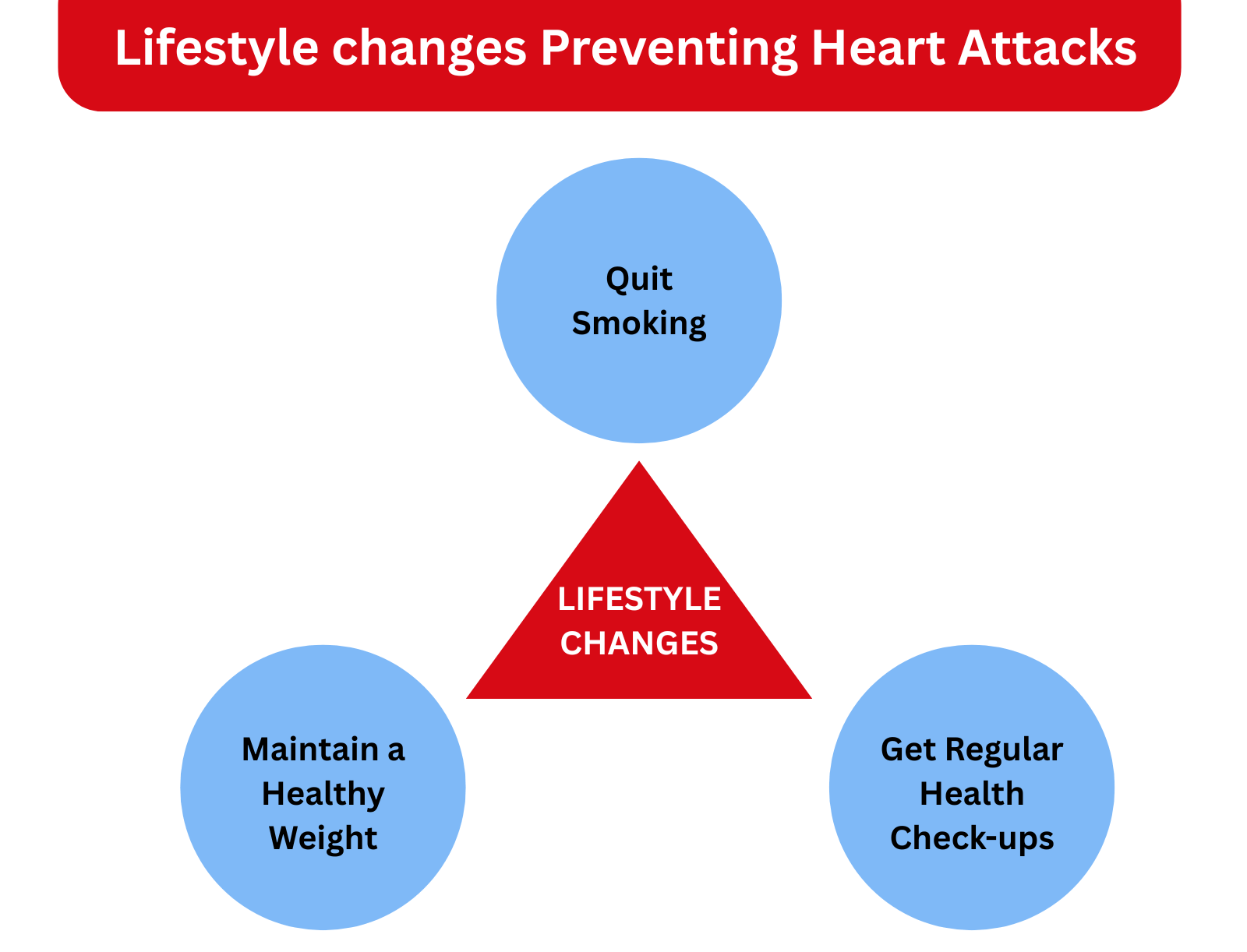How to Protect Your Heart During the Rainy Season

Heart Protection During Rainy Season: Consult to Cardiologist
The rainy season brings much-needed relief to the heat and dryness of the summer, but it also brings risks for heart patients. The shift in weather can exacerbate cardiovascular conditions, leading to a higher risk of heart attacks. This blog will discuss how the rainy season affects heart health and cardiology, offer practical tips for preventing heart attacks during this period.
Why This Topic Matters

During the monsoon, our bodies experience changes that can stress the heart more. Humidity, changes in temperature, and the increase in respiratory infections can make it difficult for people, especially those with pre-existing heart conditions, to stay healthy. Understanding how the rainy season affects heart health and knowing how to prevent heart attacks can save lives.
In this blog, we will cover:
- - The impact of the rainy season on heart health
- - Practical tips to reduce the risk of heart attacks during the rains
- - How to recognise early signs of a heart attack
- - The role of diet, exercise, and lifestyle changes in preventing heart problems
- - How to stay protected if you have a pre-existing heart condition
The Impact of Rainy Season on Heart Health
The rainy season affects cardiovascular health in multiple ways. The increased humidity and fluctuating temperatures can lead to:

- Lower Oxygen Levels: High humidity in the air makes breathing harder, reducing the amount of oxygen available for your body. The heart has to work harder to pump oxygenated blood, increasing the risk of heart attacks. Diagnostic tools such as PET-CT, MRI / CT, USG, and DSA can be crucial in assessing heart function and identifying any underlying issues, helping to guide appropriate treatment.
- Pressure on the Circulatory System: Sudden weather changes can cause blood vessels to constrict and expand, leading to increased blood pressure. This can strain the heart and increase the likelihood of a heart attack, especially for those with high blood pressure.
- Increased Respiratory Infections: The monsoon season is known for increased respiratory infections. Infections put stress on the body and the heart. In people with existing heart conditions, infections can trigger complications that might lead to a heart attack.
Practical Tips to Prevent Heart Attacks During the Rainy Season
While it’s impossible to change the weather, there are several measures you can take to reduce the risk of heart-related problems during the monsoon:
- Monitor Your Blood Pressure: Rainy weather can cause blood pressure fluctuations. Regularly checking and maintaining your blood pressure within a healthy range is essential to protect your heart.
- Stay Active, But Be Cautious: Exercise helps maintain heart health, but it’s important to be mindful of your activity during the monsoon. High humidity can make breathing more difficult, so opt for light exercises such as walking indoors. Avoid strenuous activities if you’re feeling weak or fatigued.
- Watch Your Diet: A healthy diet plays a crucial role in heart health. During the monsoon, indulging in comfort food is tempting, but heavy, oily foods can worsen your heart condition. Focus on eating heart-healthy meals, including vegetables, fruits, and whole grains. Foods rich in omega-3 fatty acids, like salmon and walnuts, help maintain heart health.
- Stay Hydrated: Dehydration is a common problem in the rainy season. While the rains bring cooler weather, you may still sweat and lose water. Proper hydration ensures your heart doesn’t have to work harder to pump blood.
- Avoid Stress: Rainy weather often brings about mood changes or depressive feelings due to the lack of sunlight. However, stress is a significant risk factor for heart attacks. To reduce stress, practice relaxation techniques like deep breathing, meditation, or yoga.
How to Recognize the Early Signs of a Heart Attack

Understanding the early warning signs of a heart attack can save your life or the life of someone close to you. While chest pain is the most common symptom, here are some other signs to look out for:
- Shortness of breath: If you struggle to breathe, even during simple activities, seek immediate medical attention.
- Dizziness or lightheadedness: Feeling faint or lightheaded can indicate a heart problem, especially if combined with chest pain or discomfort.
- Pain in the upper body: If you experience pain or discomfort in the arms, neck, jaw, or back, it might indicate a heart attack.
- Cold sweat: Sweating excessively, even in cool weather, is a common heart attack symptom.
If you notice any of these signs, do not hesitate to seek emergency medical help. Early intervention can drastically improve recovery outcomes.
The Role of Lifestyle Changes in Preventing Heart Attacks

Lifestyle changes are one of the most effective ways to reduce the risk of heart attacks, especially during the monsoon season. Here are some simple yet powerful lifestyle adjustments you can make:
- Quit Smoking: Smoking increases the risk of heart disease by causing plaque build-up in the arteries. The monsoon season is a good time to quit smoking as the weather can encourage you to stay indoors, reducing exposure to triggers.
- Maintain a Healthy Weight: Obesity is a major risk factor for heart disease. It’s easy to become sedentary during the monsoon, so maintaining an active lifestyle is key.
- Get Regular Health Check-ups: Regular visits to your cardiologist can help identify risk factors such as high blood pressure, high cholesterol, or diabetes, which can increase the risk of heart attacks. Annual check-ups are essential for heart health, especially in the rainy season.
For heart health concerns, particularly during the rainy season, consulting one of Bombay Hospital’s expert cardiologists is a crucial step in preventing heart attacks. The hospital is equipped with state-of-the-art diagnostic tools and facilities, ensuring the best care for heart patients.
12, Vitthaldas Thackersey Marg, near Liberty Cinema, New Marine Lines,
Marine Lines, Mumbai, Maharashtra 400020.
Frequently Asked Questions (FAQs)
Conclusion
Preventing heart attacks during the rainy season requires awareness and proactive measures. By monitoring your health, managing stress, maintaining a heart-healthy diet, and seeking regular medical check-ups, you can reduce the risk of heart-related problems. If you have any concerns about your heart health, do not hesitate to consult a cardiologist at Bombay Hospital. Heart health is crucial, and early intervention can make all the difference.

